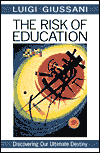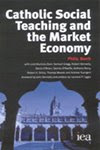The garden of forking paths
At First Things, Robert T. Miller parses the concept of ethical relativism. A useful map of the dead ends of modern ethical thought, but a warning too: we should take even error as we find it, and not as we hope or think it might be…
Faced with a bewildering assortment of moral systems all different from the Catholic one, Catholic thinkers cannot throw up their hands and condemn all the competitors as forms of relativism. For one thing, knowledgeable people will realize that the charge is clearly false and will thus conclude that the Catholic thinker doesn’t really know what he’s talking about. For another, the people the Catholic thinker is accusing of relativism are in fact producing arguments—often very sophisticated ones. Religious believers who are committed to participating in the public square need to understand these arguments and be prepared to answer them. They cannot escape this hard work by invoking the bogeyman of ethical relativism.
[Update] I have one reservation with Miller's analysis. Academe may parse concepts ad absurdum, but what happens in academe is not the same as what happens in the wider culture. It is a truism that apparently practical men implement the thoughts of long-dead scribblers. The emotivism of the 20th century, discredited amongst serious thinkers, is nonetheless potent. We all encounter this, every time we hear someone say, in defiance of facts, "I'm still entitled to my opinion...".





No comments:
Post a Comment